Duty of Care implies the legal necessity for a corporation to take reasonable measures to ensure the safety of its international travelers. In order to deal with the ambiguity inherent in the legal definition of Duty of Care, Atlas Aegis LLC utilizes a four pronged approach to help a corporation meet this legal and moral obligation.
In practical terms for a corporation with employees traveling abroad, Duty of Care implies the legal necessity for a corporation to take reasonable measures to ensure the safety of its international travelers. In order to deal with the ambiguity inherent in the legal definition of Duty of Care, Atlas Aegis LLC utilizes a four pronged approach to help a corporation meet this legal and moral obligation.
This approach includes the following subcategories:
- Duty to Disclose Risks
- Duty to Prevent and Mitigate Risks
- Duty to Monitor the Situation
- Duty to Respond and Assist in Emergencies
Duty to Disclose Risks
Duty to Disclose Risks ensures that employees understand the hazards associated with the country(s) they are traveling to. This allows them to both mentally and physically prepare for travel abroad and accept associated dangers, which results in less mental strain on the employee while traveling. This category requires that a corporation is aware of associated risks. To truly accomplish this, a subject matter expert (SME) must be consulted. The SME through the use of extensive knowledge and in-country connections, Signals Intelligence (SIGINT), and Open Source Intelligence (OSINT) can accurately provide the current risk landscape. This information can then be used to develop pre-travel training courses, videos, literature, etc. tailored to specific employee types. The need for specialization is key as the risk landscape is not static across all employees. For example, an executive traveling abroad has a different level of risk associated with kidnapping, ransom, and extortion (KRE) than a lower level employee.
Duty to Prevent and Mitigate Risks
Duty to Prevent and Mitigate Risks speaks to a corporation’s responsibility to take reasonable measures to prevent or reduce the probability of dangerous situations from occurring. Reasonable measures again is ambiguous and very much location dependent. In some locations, consultation with a SME and development of pre-travel training materials may be enough to meet this duty. However, in more dangerous landscapes (especially low-income or developing nations), the pre-training material is just an initial step to preventing and mitigating risk. In these dangerous environments, it is often necessary to establish both a Close Protection Team (CPT) and a Digital Overwatch Team (DOWT) with a designated Project Manager (PM) to ensure secure transportation and protection during the duration of the employee’s assignment. The combined mission of the CPT and the DOWT is employee safety with the main goal of preventing conflict from ever occurring through the use of industry tradecraft.
Duty to Monitor the Situation
Duty to Monitor the Situation is necessary to ensure employees’ safety throughout the duration of their assignment. Given the fluidity of risk landscapes, it is necessary to have a DOWT monitoring the situation so that new threats to employee safety can be established in order to meet the previous Duty to Prevent and Mitigate Risks. DOWTs use SIGINT and OSINT to survey the digital landscape, which includes but is not limited to social media, local forums, communication signals, etc. This real to near-real time information is used to identify signs of increased risk either within an area in general or directly targeted at an employee. When applicable, a CPT also serves a role in monitoring the situation through the use of human intelligence (HUMINT) gathered by establishing human networks often through the use of civil and humanitarian affairs. The information gathered from the DOWT and CPT is then used to evaluate the current plan to prevent and mitigate risks and make any necessary changes.
Duty to Respond and Assist in Emergencies
Duty to Respond and Assist in Emergencies requires that a corporation have a plan in place should an emergency situation arise. Note, that this goes above and beyond simply having a CPT and DOWT. While the CPT and DOWT will have a role in this Duty, they are not sufficient to meet the demands of this obligation. It is critically important that a Crisis Response Team (CRT) be retained should an emergency situation occur. The goal of this team is to secure an employee as quickly and safely as possible (usually against payment of a reasonable ransom if applicable). For this to happen, the CRT must have access to consultants with the reach, experience, cultural awareness, and language capabilities to be effective in the given location. An effective team will consult with a variety of different professionals depending on the nature of the crisis. Examples include but are not limited to psychological and medical care specialists, profilers and investigators, IT forensics providers, crisis communication specialist, and relevant authorities at home and abroad. Further, this team organizes the deployment of the crisis response and provides ongoing advice and support throughout the emergency.
Benefits of Ensuring Duty of Care
Ensuring Duty of Care is simply good business. Apart from the legal implications of a negligence lawsuit that can result in severe financial penalties and permanent reputational damage, businesses that prioritize employee health, safety, and overall well-being experience improved business continuity as well as employee loyalty, retention, and productivity. This is backed by studies which found companies that prioritize employee safety and take visible proactive steps to ensuring this outperform the S&P 500 by between 3 and 5 percent. As an emerging leader in the private security sector, Atlas Aegis LLC through the use of industry leading training, personnel, and tradecraft along with its vast network of top industry partners, has compiled a portfolio of completed an ongoing projects that emphasize corporate security and international travel risk mitigation. Having experience in all of the aforementioned mitigation strategies and more, Atlas Aegis LLC is well positioned to help corporations meet their moral and legal obligation to Duty of Care for their employees traveling abroad.





